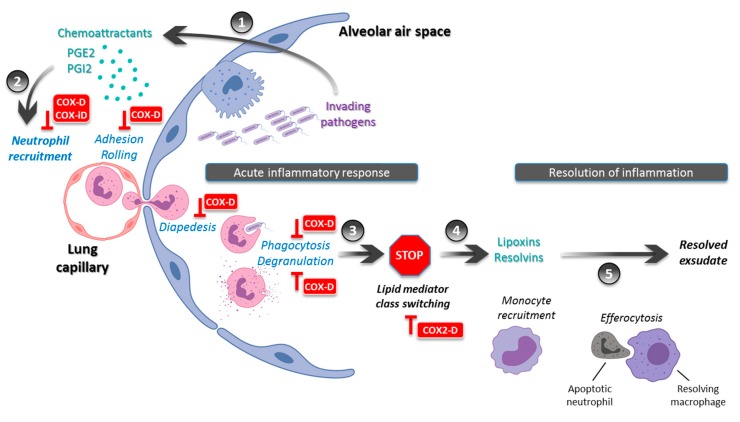Figure 1.
During pneumonia, NSAIDs may interfere with acute inflammation response and resolution. Invading pathogens within the alveolar air space induce an innate immune response, which involves cyclooxygenases (COX) to generate lipid mediators of inflammation such as prostaglandins (PG) E2 and I2 (1). NSAIDs may alter the subsequent recruitment of polymorphonuclear neutrophils through both COX-dependent and COX-independent effects. NSAIDs also alter their intrinsic functions such as phagocytosis and degranulation (2). The acute phase response is followed by a lipid mediator class switching (3), which leads to the biosynthesis of pro-resolving mediators such as lipoxins and resolvins (4). By inhibiting this stop signal through COX-2 inhibition, NSAIDs may limit the local recruitment of monocytes, which act through efferocytosis to resolve exudate, and subsequently hamper the resolution of inflammation (5). Abbreviations: COX-D = Cyclooxygenase-dependent; COX-iD = Cyclooxygenase-independent; COX2-D = Cyclooxygenase 2-dependent. Adapted from Serhan et al. [34].

